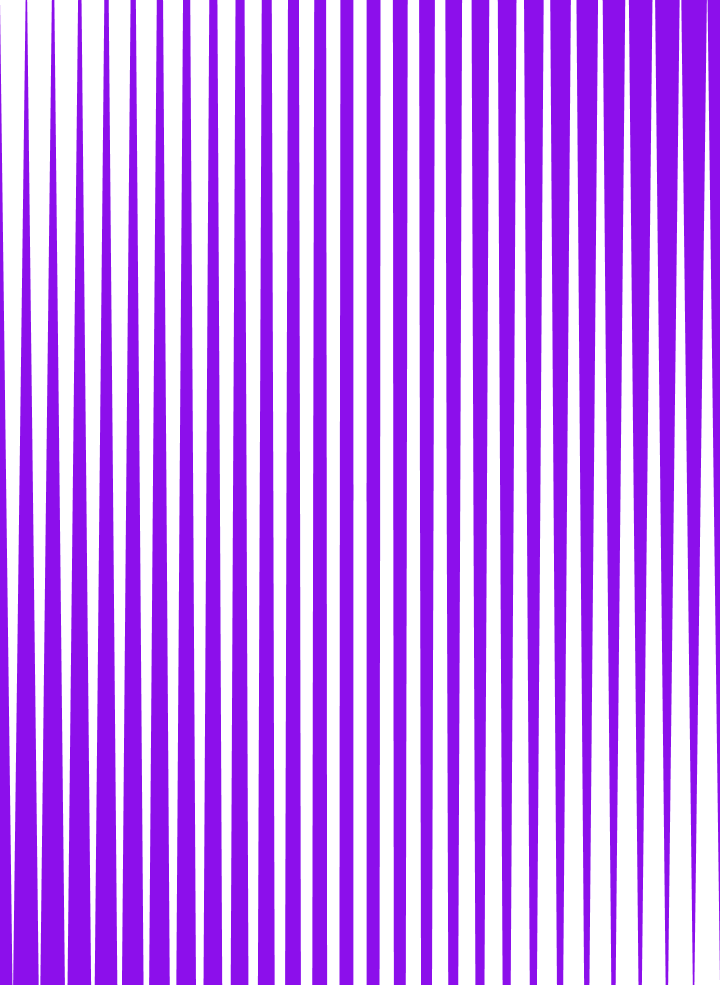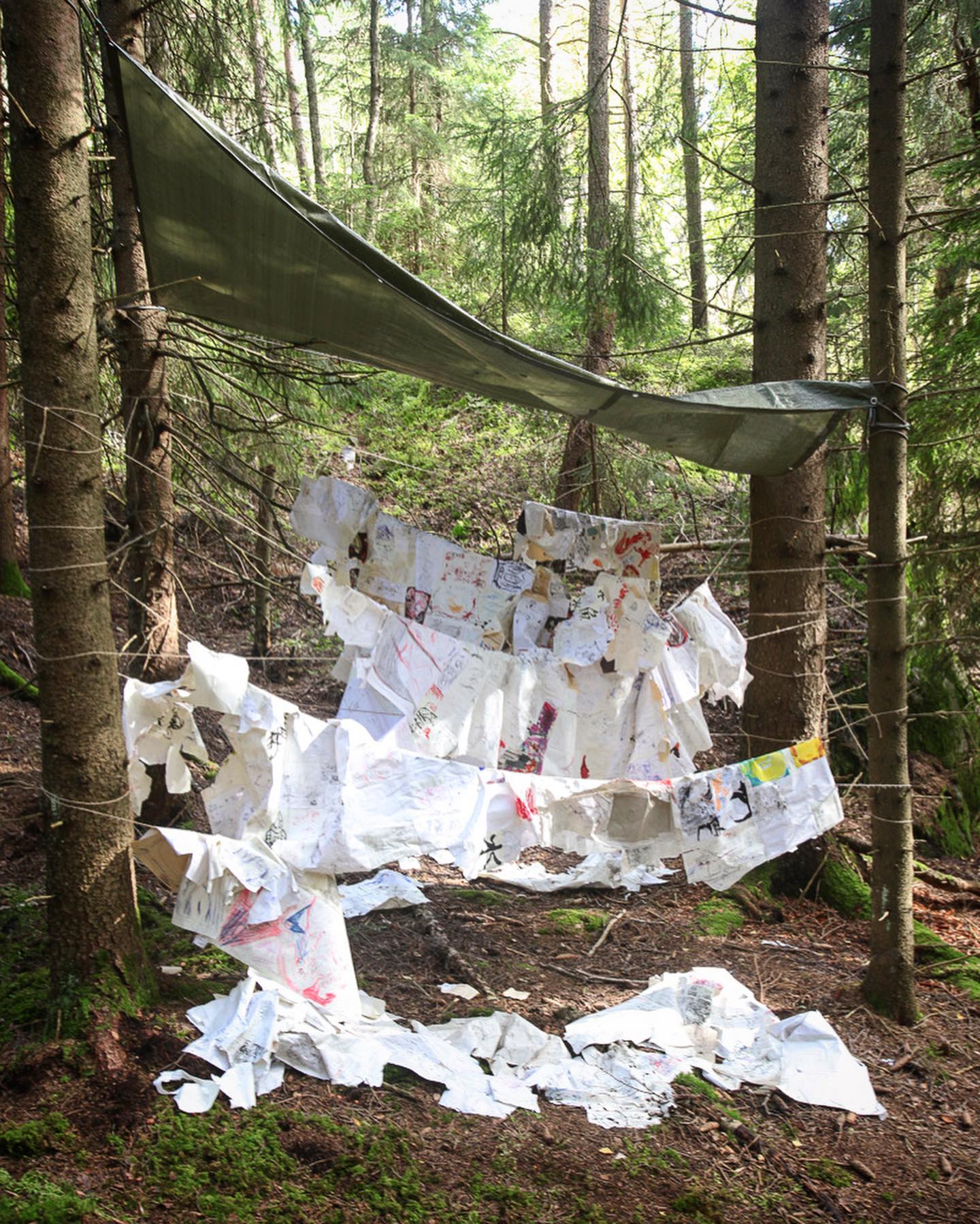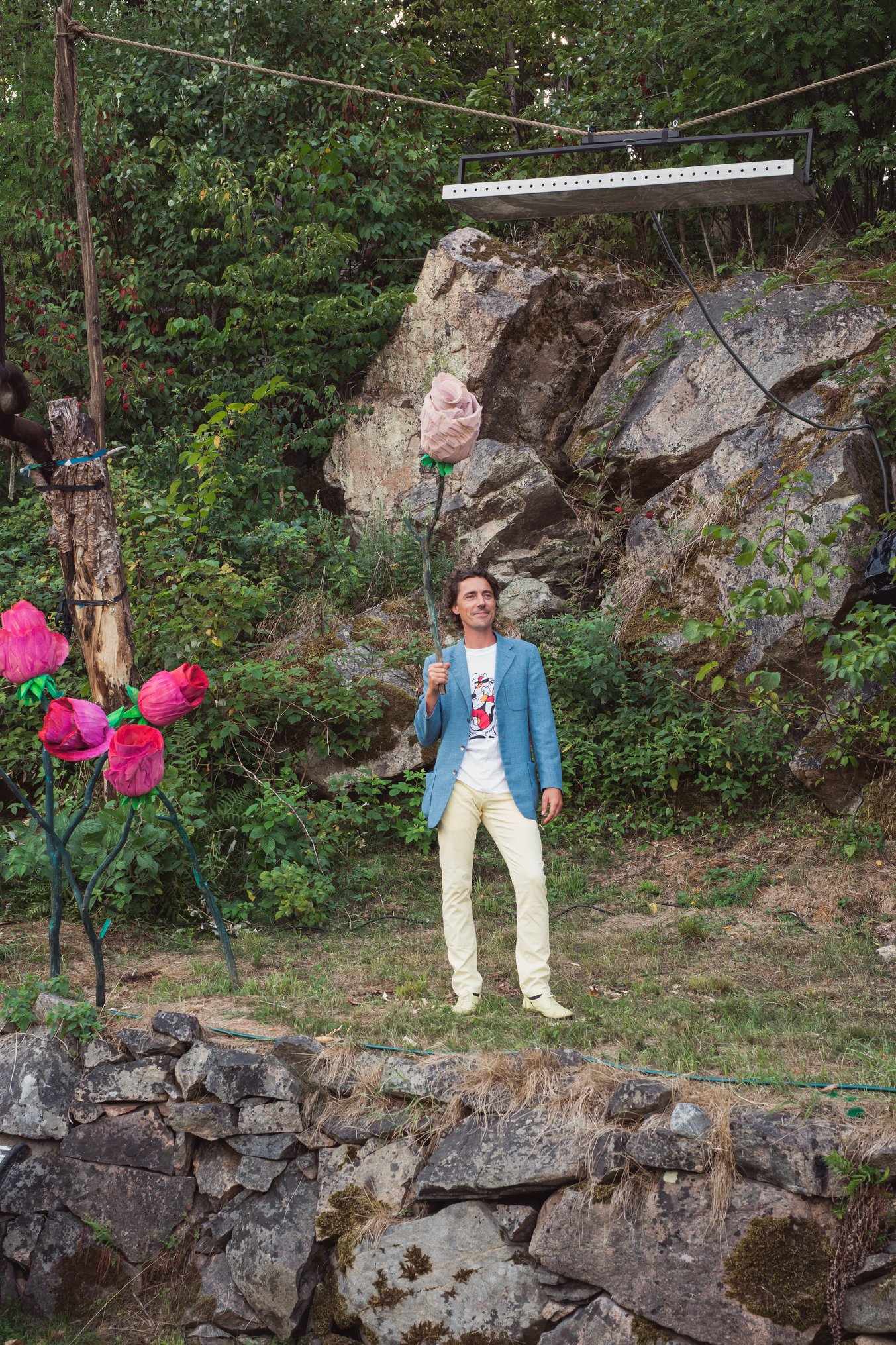
We reacted quickly to the ever-changing reality – we took up socially relevant issues and responded to the needs of the residents of Wrocław. We detected trends to later explore various cultural niches, sometimes despite the general consensus. Following the grassroots movement, we tried to make our programme more accessible and dedicated to various age groups.
We invited everybody to participate in discussions, lectures and workshops in Barbara – in the past, a diner, now the headquarters of our Institute and clubhouse in the heart of the city. Taking advantage of our location, we focused on issues vital to society. We paid tribute to nostalgia by talking about Polish, postmodern architecture, iconic TV series, and bands from the 1990s. We participated in the discussion on the demolition of Solpol and made collages on the alternative future of this architectural icon in our open studio. Due to the love for urbanism and literature, a series called “Czytam miasto” (“Read the city”) came into existence. Thanks to it, Polish writers and researchers could exchange opinions with the Wrocław public.
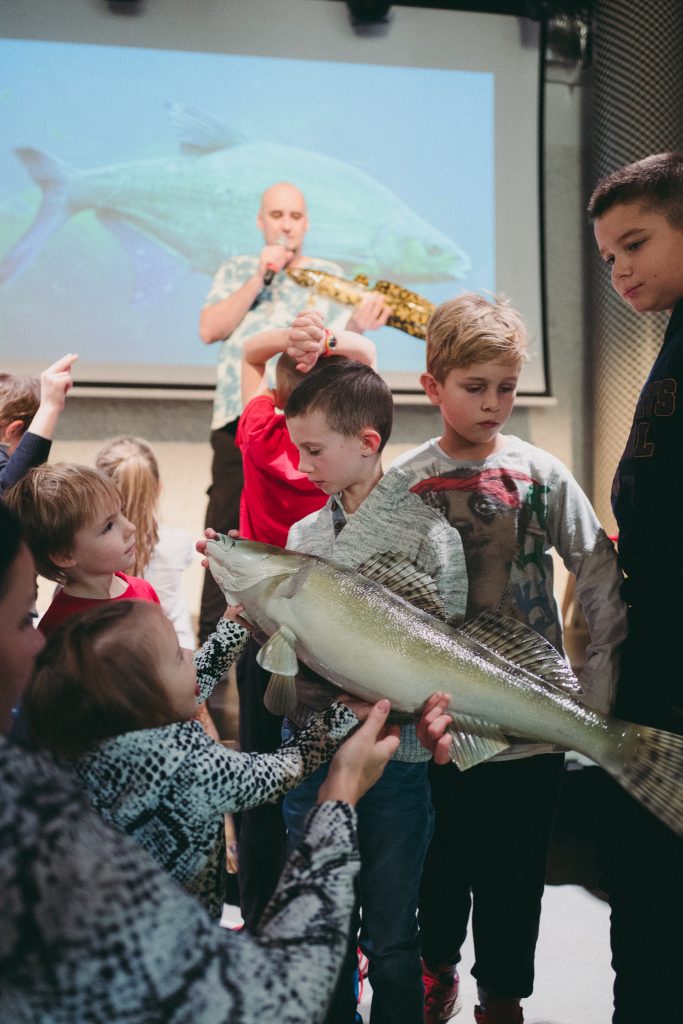
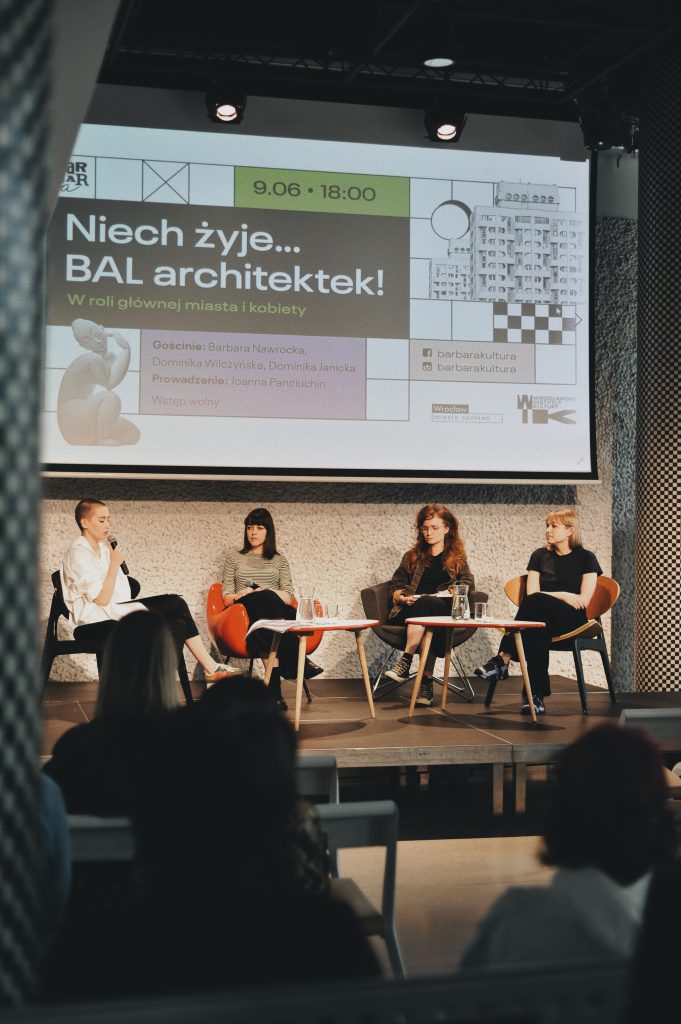
In the autumn, we started new cooperation. For example, with the State Fund for the Rehabilitation of the Disabled, we aimed to make our cultural programme available to people with disabilities. As we cherish the idea of intergenerational integration, most events were targeted at people with children. We identified four sectors which needed further development – infrastructure, staff competencies, communication and a programme of workshops and lectures. Last year, in Barbara, we also introduced changes enabling movement for people with visual and hearing disabilities.
At ul. Świdnicka 8b, we regularly held events for people with children. Over 800 people actively participated in lectures and workshops with Łukasz Iwaniuk and Kasia Bury, where we educated families on the Wrocław fauna and flora. The meetings were in an accessible format, with the possibility of using an assistant, a hearing loop or contacting a Polish sign language interpreter online.
In 2022, the leitmotif in Barbara was water. With Katarzyna Roj (BWA Wrocław), we analysed the irrigation history of Europe. During the family workshops, we converted our reflections into art by creating creative collages and embroideries and learnt about the inhabitants of estuaries. Janek Topolski spoke about the Wrocław river landscape with the local scientists, architects and activists. Water was also a reason for discussions about the ecological catastrophe and ways to protect the environment in the city. When discussing climate change, we must mention the memorable meeting with the collective of activists, Siostry Rzeki.


The theme of water was present not only in Barbara but also during the European Night of Literature. Michał Rusinek, a literature expert, was the curator of the 11th edition. His quote, “Rivers are a city’s circulatory system, going through it and designating its topography,” inspired us to make water, nature and ecology the theme of that edition. The catastrophe in the Oder River accidentally fit the theme and made us realise that we desperately needed to understand our relationship with nature.
In 2022, the European Night of Literature kept its original structure: ten people of Polish culture read passages from ten books in ten exciting locations. Last year we met at Przedmieście Świdnickie, a surprising site as the river does not surround it. The European Night of Literature was not limited only to Polish literature – the book list also contained foreign authors (Zadie Smith, Dezső Kosztolányi, Colin Thubron), and their poetic reportages evoked many emotions.
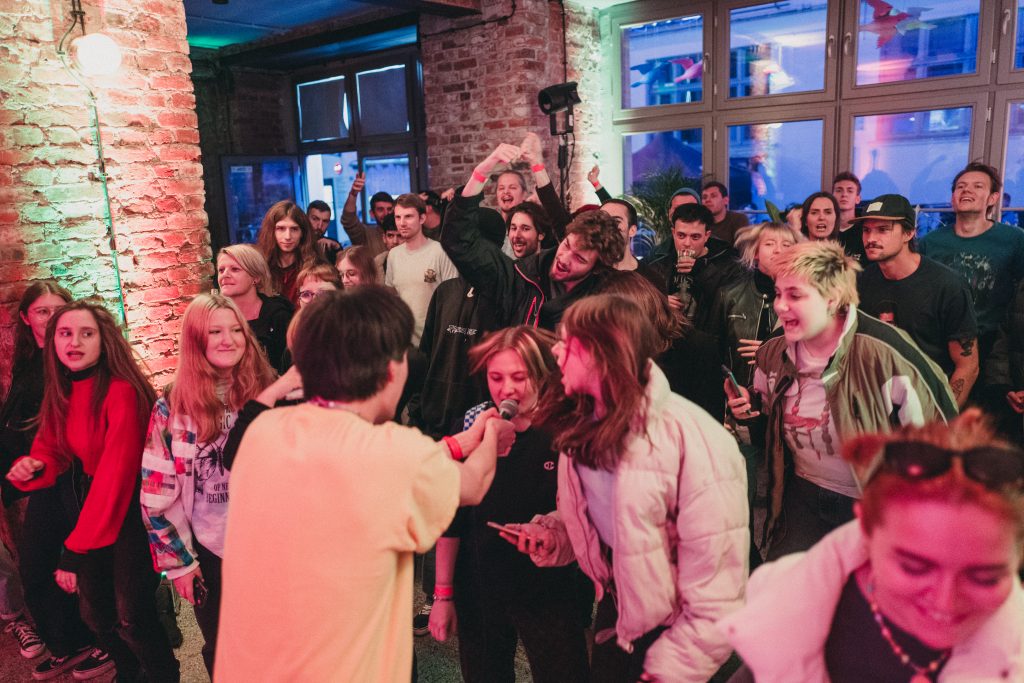
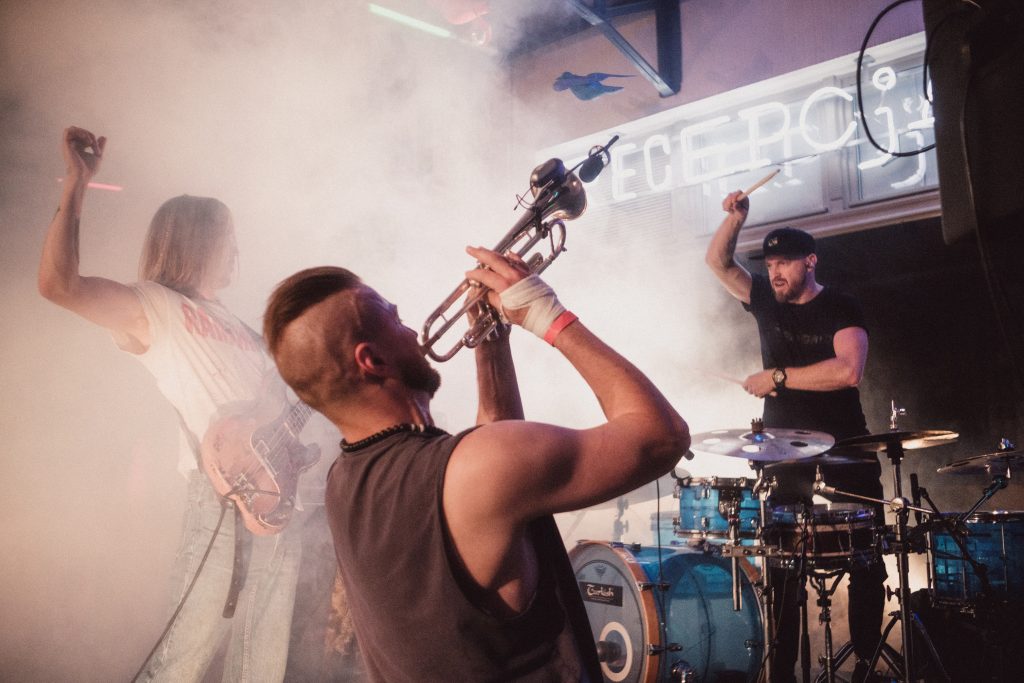
The second important place operating under the Wrocław Institute of Culture is the clubhouse, Recepcja, located in the neon-lit courtyard of Ruska 46. Last year, we organised seven cosy events, which allowed the Wrocław audience to listen to artists from the most interesting music genres of the Polish indie scene. The spring season was opened by Jakub Skorupa, whose personal lyrics deeply moved the audience. The programme also included a local audio-visual collective, ŻÓŁĆ, and a jazz quartet, Ślina, which plays brave and entirely improvised music. Besides that, we organised one unforgettable outdoor concert – Pink Freud, founded by Wojtek Mazolwski, played their punk-jazz concert lit by the neons.
If people wanted to listen to more experimental live music, they undoubtedly headed towards Ruska 46. But Recepcja is still mostly recognised for its regular DJ sets (almost 100 in 2022!) Nearly every weekend, the dance floor was packed, as we had some of the local masters behind the deck – Dyyune and DJ Duch, the resident DJ Beezee and many more excellent musicians from outside Wrocław. What was new in the programme were intergenerational dance events, which were attended by people who missed them from the previous eras.

But before we heard any music in Recepcja, we had discussed essential and current issues with professors, historians, sociologists and authors. During the meetings organised for the popular series, Socjopercepcja, we discussed the social and economic crisis, educational alternatives and the housing changes in Poland while disproving the stereotypes of living in the countryside and the outskirts. In June, for the WroPRIDE 2022, there was a meeting of the LGBT+ movement, and in September – a meeting with Anton Malinovski and Margo Reznik, participants of the AIR Wro residency, “Ukraine will be,” where they talked about their art.
Recepcja is also a space for artistic expression for visual art creators. In 2022, we organised seven painting, illustration, graphics and photography exhibitions. The walls of Recepcja were covered with colourful, optimistic works of a Gdańsk-based artist, Paweł Król, and of Gosia Kulik, whose painting and drawing collection presented scenes from Hala Targowa. And last but not least, Recepcja is a place where people can gain new skills in an intergenerational group. In cooperation with the Wrocław Centre for Social Development, we organised plenty of sewing, cooking and gardening workshops and a number of highly-praised workshops with a graphics student, Justyna Łaciok, on collage-making.
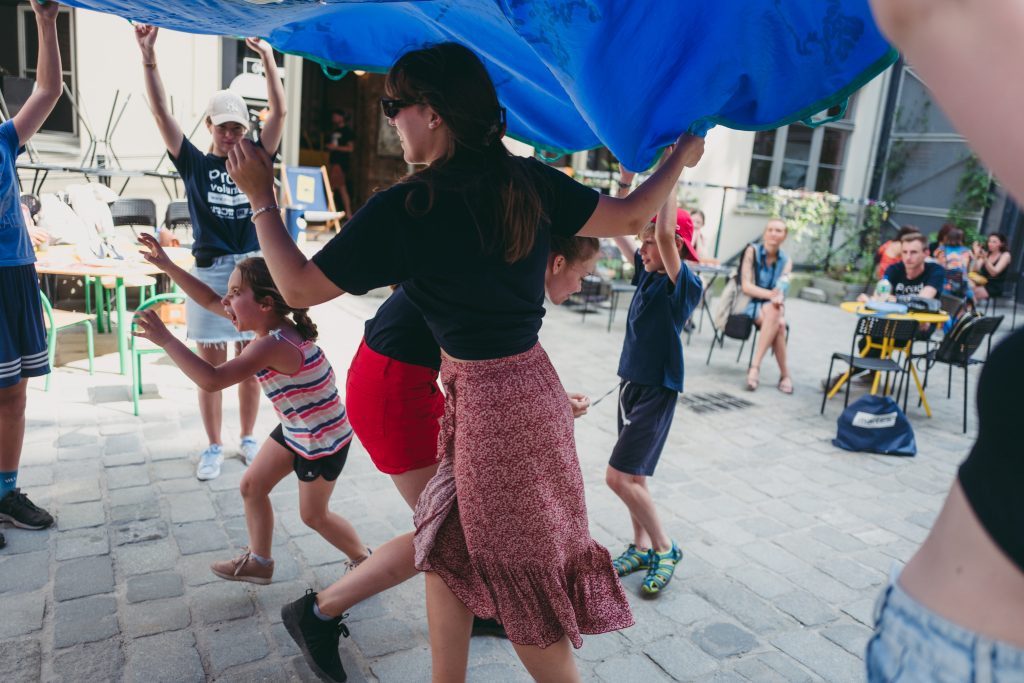
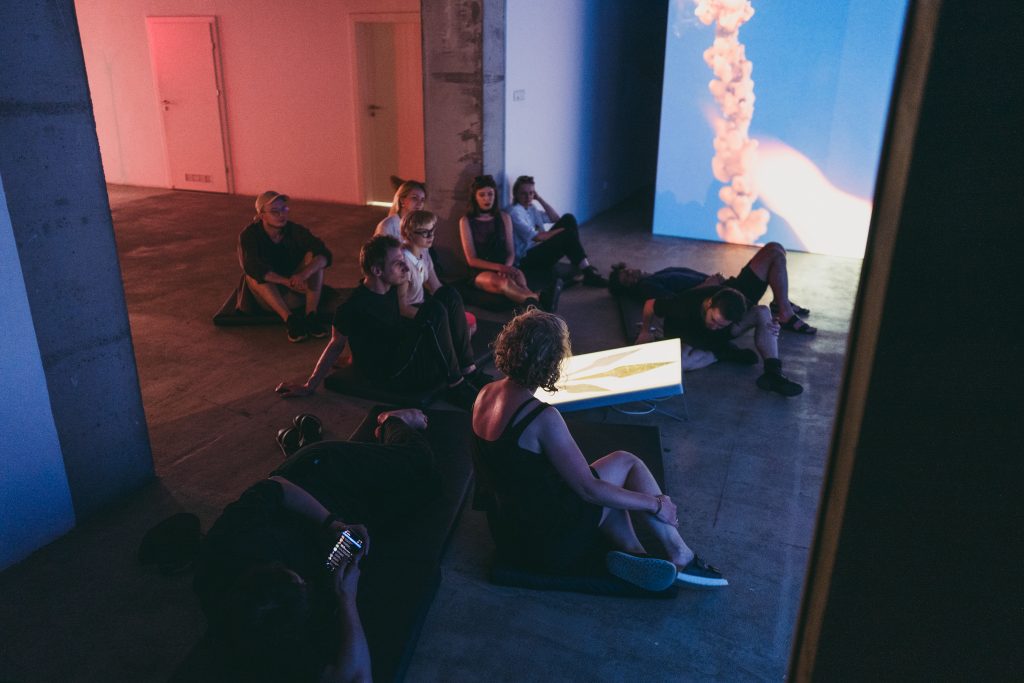

Just like the year before, in 2022, Recepcja held meetings of representatives from NGOs and artists residing at Ruska 46, so everybody could participate in the organisation of the Ruska 46 Backyard Day. This loud, three-day celebration reflected the mosaic of cultural and social events offered there. The programme in June contained 25 events! BWA Studio, ArtBut Gallery and IP Studio hosted exhibitions and installations, and a ceramic painting workshop was organised at Ognisko Kultury Plastycznej. The yard was covered with glitter during the Drag Queen Show, and the concert repertoire left people in awe regarding the genres and moods – the concerts by Monotoni Primitivo, Decadent Fun Club and Taras Bakovski are difficult to forget. The programme also contained classes for children and teenagers – workshops and outdoor games. By co-organising this celebration, we wanted to remind everybody that the courtyard does not revolve only around the neons but also that it is a cultural hub for all artistic avenues, entertainment and social meetings.
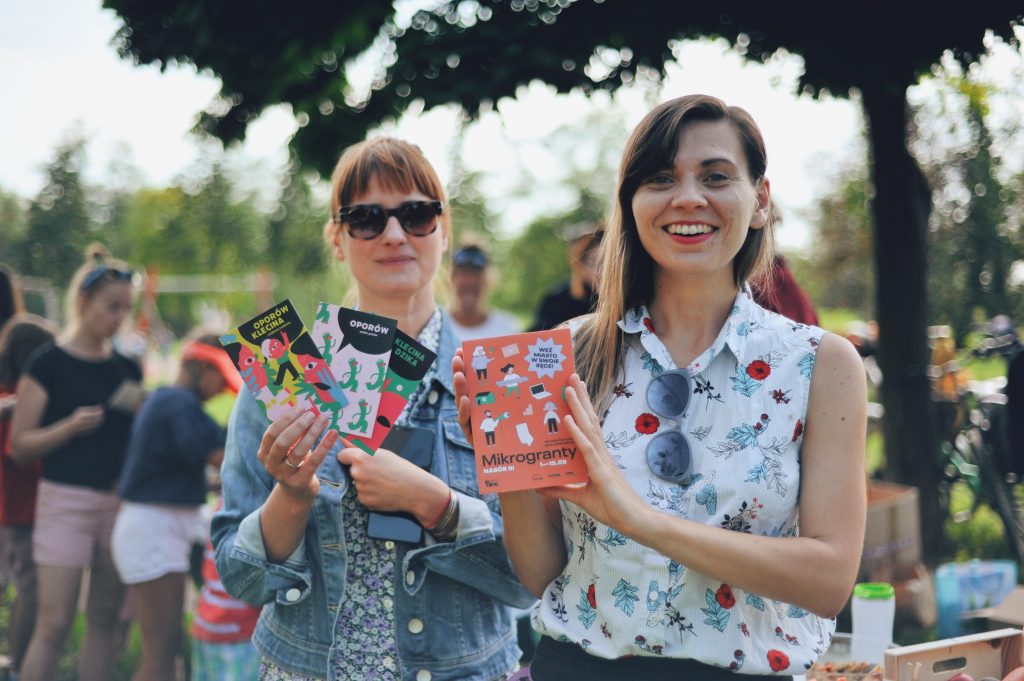
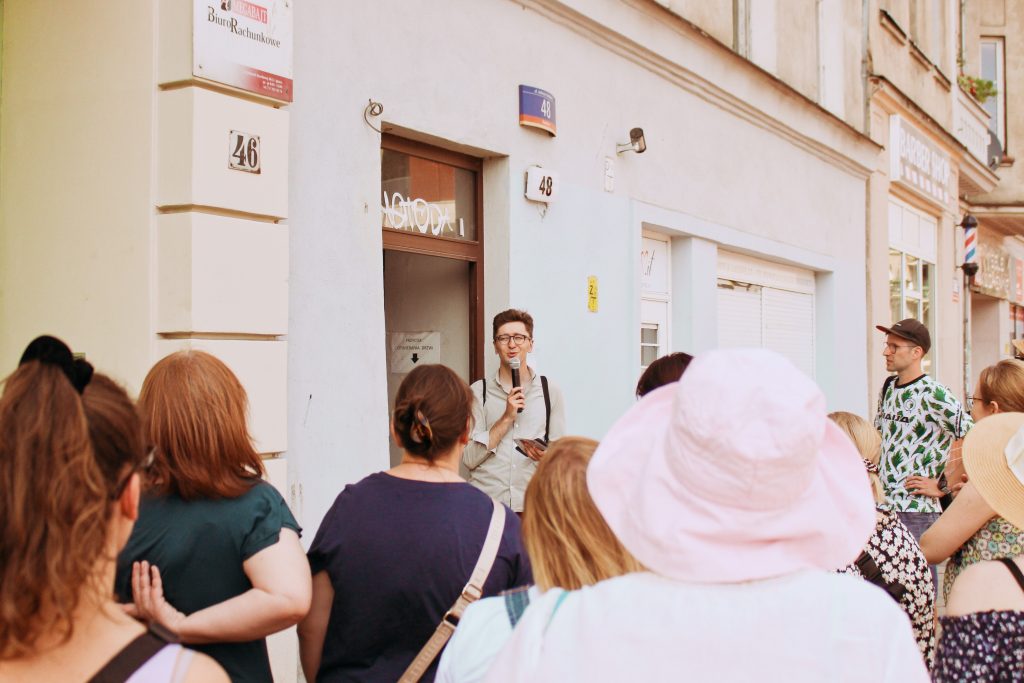
Microgrants are the unrivalled opportunity to organise local events, which is important from the perspective of not only the operation of the Wrocław Institute of Culture but also the whole city. In 2022, in cooperation with the Umbrella Foundation, we carried out 115 ideas on relationship building and intergenerational events in Wrocław. Many successful projects were created in response to the influx of new residents. During the crafts workshops, we created macramés and collages, but most importantly, we made new friendly connections between Polish and Ukrainian people. Teenagers sensitive to nature, with the help of their neighbours from Szczepin, sowed a couple of mini meadows full of flowers and built insect houses. The senior citizens participated in the workshops on Argentinian and medieval dances. And what were the most unusual events of this edition? Just to mention a few, workshops on funeral floristics, robot building and constructing benches for neighbours. We do not plan to slow down with the new year – the call for proposals opens on the 1st of February!

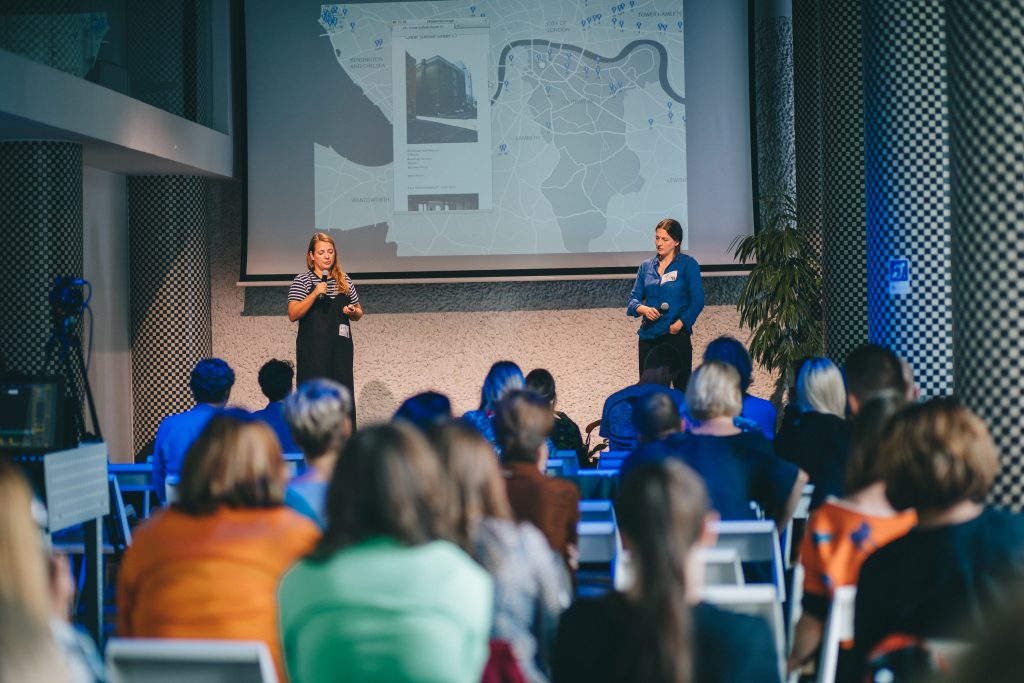
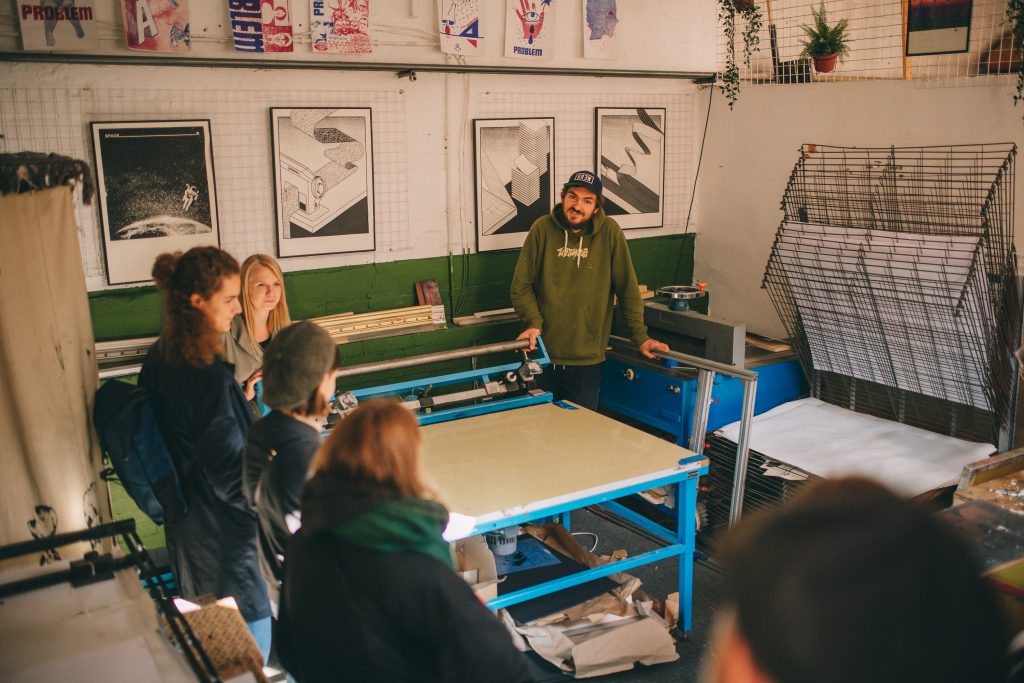
We are conducting one more animation programme at Wrocław districts – with a high attendance of Wrocław residents – a series of local activities. The walking season began with a May holiday, Neighbours’ Day. Because of this event, we embarked on a trip alongside ul. Świdnicka making eight stops to get familiar with the institutions and organisations located there. We learnt the history, values and functioning of the Wrocław Opera, Passage of Dialogue, and Odkrycie Foundation. And in June, we started a series of twelve walks with neighbours. With our favourite tour guides, we discovered Gajowice, Huby, Kozanów and Kleczków by learning about their architecture and commercial offer and listening to the shocking urban legends. The programme’s final event was The Art of Neighbourhood – a forum of local art activities. During the conference in Barbara, we had a chance to meet people working in the social and cultural sectors of Wrocław, Poznań, Łuków and Berlin. We organised two workshops strengthening the competencies on cooperation with residents and visited galleries: Macondo, Miserart, Pracownia Witryny and NOWY ZŁOTY, operating in an old newsagent building.
We do not want to get out of the loop – we are back on the urban track in spring!

